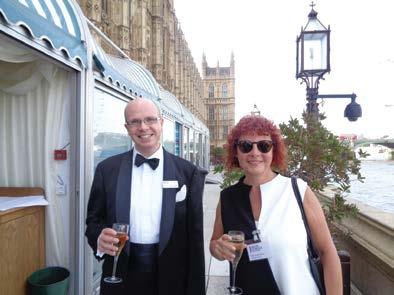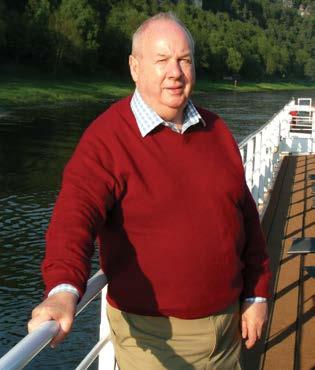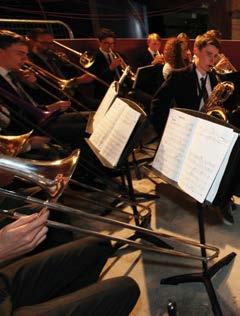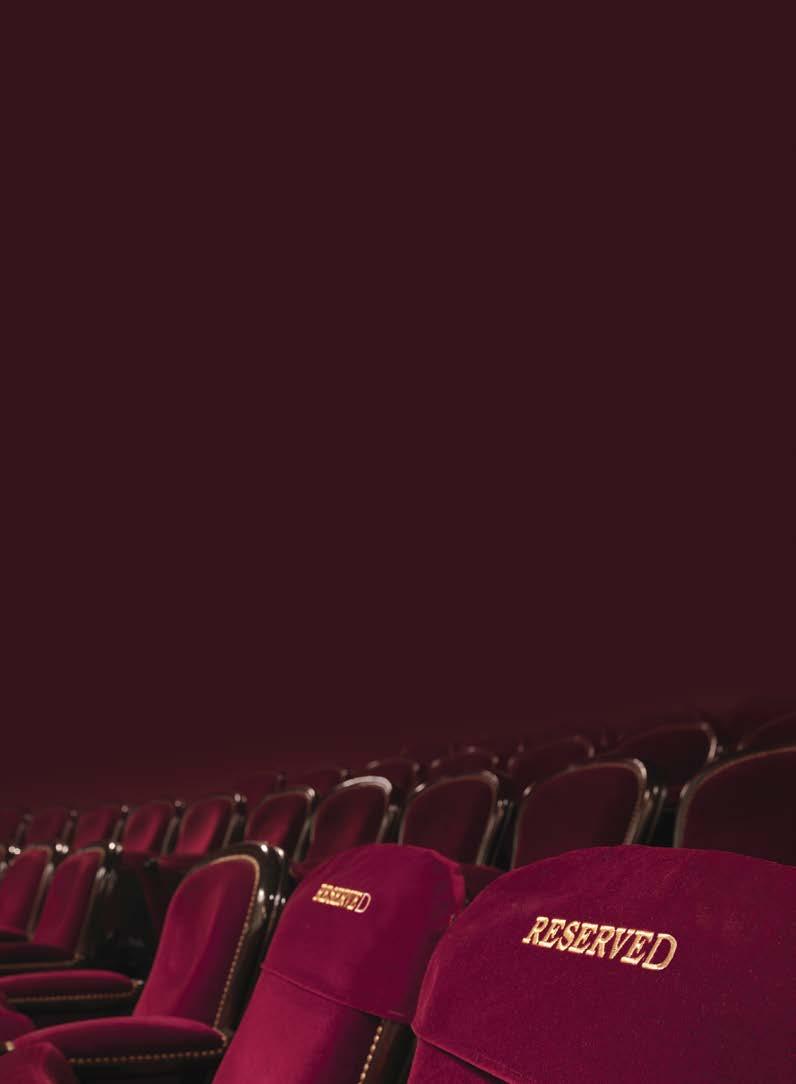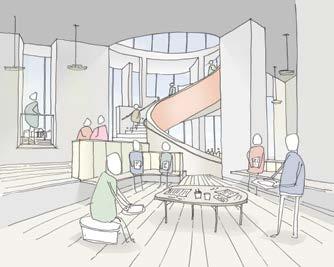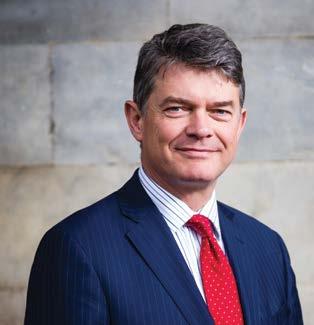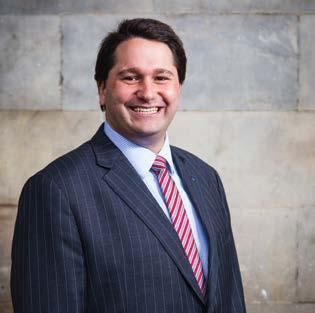
7 minute read
Ewan Hooper: Interview
Ewan Hooper
Actor, director, writer, and theatre entrepreneur Ewan Hooper attended the High School between 1940 and 1952, before going on to study at RADA.
The highlights of his career are so numerous it’s difficult to narrow them down, but they undoubtedly include setting up London’s Greenwich Theatre in 1969, and working alongside iconic performers including Anthony Hopkins, Lawrence Olivier, Vivien Leigh, and John Lennon during his time on stage and screen. You might recognise him from roles in The Avengers, Hi-de-Hi, or, more recently, the feature film Kinky Boots.
Caroline Howitt caught up with Ewan in London, nearby his old theatre in Greenwich.
Hello Ewan, thanks very much for joining us. Would you like to begin by telling us a little about your memories from your time at the School?
When I started it was wartime, I was four or five, and I remember there were no uniforms due to shortages. My favourite subject was English, and though I wasn’t particularly fond of Classics at the time, I’ve since translated a number of Greek plays. I used to attend the Rep every fortnight, which was situated on Nichol Street in those days. At School I was in the cadets of course, and I played rugby – I’m still trying to recover from the bruises!
Did you do a lot of Drama at the School? There was an opera every second year and apart from that there was very little in the way of Drama apart from what was produced by the eccentric Classics teachers. I would have been so delighted if in my day the school had had an Arts centre of the type you’re trying to build!
Well thank you for your support! So after School you went to RADA didn’t you? Yes, for a year, and then I went into the army. People at the time either got the deferment for national service until they got their degrees or sometimes they went before they went to university. I started off in basic training and was sent off to Libya in the Reserves stationed there. At this time it was quiet and we had quite a lot of fun; I was there for about 18 months, and used to direct Rattigan plays in the tank hangar. It was extraordinary. I survived quite well I suppose.
And then you returned to RADA for another year. What was that like? Voice training, voice movement, singing. We had some old actors that were brought in. There was a marvellous old actor called Ernest Martin who had worked with Ellen Terry. He was very old by this time and he was exactly what you’d expect a man of that age to be like. He was supposed to have chased a bus down Tottenham Court Road saying “Stop, Stop! You’re leaving a Junius behind!” Like the classicists at the High School, it was lots of eccentric people. What advice do you have for aspiring young actors? Don’t do it! No, I’m joking. Get experience. Take all the opportunities that you can; go to a good Drama school, and get really good training. So I suppose if I was trying to give anyone advice, it would be to go to one of the best Drama schools, like Bristol, and get a really good training: now the training is longer, it’s three years rather than two, and they even give you a degree at the end of it!
You clearly believe in the merits of a Dramatic education then? Because some people are in the school of thought that if you’ve got talent then you’ve just got it, that’s it… No, that’s absolutely not true.
So it’s a skill like other things, it needs to be worked on, built up and respected?
Yes, that’s absolutely right.
What else makes a good actor? There was always a divide between people who were very handsome and attractive, who tended to play people very much like themselves. I always thought that was unfair. I was a character actor all my life, although I got to play lots of leading parts. If you’re not going to rely on attractiveness, you’ve got to do a lot of work on researching things, researching your character.
Are you of the method acting school then? We always thought that’s what we should be doing, but in fact, I think the method is too self-centred, and, particularly in the rehearsal, you’ve got to be able to discover your character. To be honest, when you’re actually doing it, there are so many things you need to think about. We used to think that you could follow Stanislavski, and live your part and all that. But in truth there are so many distractions. I mean, you have an audience just sitting there: you can see them, you can hear them very well…


Oh God, yes. We were doing a double bill by John Mortimer, and we were at the theatre. The second of the plays was supposed to take place in this trendy Vicar’s study, and halfway through the second half, the fridge went on fire! We had a code – every theatre has to have a fire code – and ours was ‘Mrs Kemble’.
So was it this secret signal where if you suddenly discovered a fire during a performance, you’d have to somehow work ‘Mrs Kemble’ in to your dialogue? Yes, that’s exactly it! So, the smoke’s coming out of the fridge, and the chap playing the Bishop went towards the wings, where the stage manager was supposed to be, and said “Mrs Kemble’s in the fridge”. Nothing happened, so he tried that twice. Until finally, he just shouted, “THE FRIDGE IS ON FIRE, FOR GOD’S SAKE!” [laughter].
Ha ha! And what about the show you enjoyed the most? Now that’s a difficult thing to try and decide on. While I was at the Citizens, I used to go to lunch at a place run by a church – one of the members came to speak to me and introduced himself. I went to see this church, he had a service at 6:30 in the evening, but all of the very tough kids on the housing estate would come to this service – it was absolutely jammed. They weren’t allowed to go to the youth club afterwards unless they’d been to the service. We used to say it was bribery but not corruption! He and I used to chat before and after this service – it was a unique atmosphere and not like any church you can imagine.
We ran a passion play with these kids, called A Man Dies (we later named one of our daughters, Mandy, after it). It was televised by ATV television, and there was a huge row about it because a newspaper stringer decided that it was terribly shocking because of the satirical lyrics we wrote, which he wrongly attributed to the wrong parts of the play, thinking that it was terribly blasphemous. We got letters from the Bible States, in America – British papers were syndicating to the US – letters saying ‘What are you doing to my Lord?!’. A Conservative MP then went on to debate, in Parliament, what they would do about such blasphemy on television. Luckily, the Bishops did like it, they thought it was marvellous.


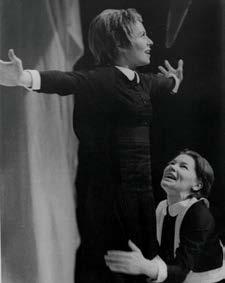
High drama indeed! And how were reviews? We got reviews from some of the super television critics; they were wonderful, and the kids were then taken off to the famous studios in St. Johns Wood, where The Beatles performed.
Finally, what is it that you think makes the Arts so vital? It’s easy to get a bit sentimental about the Arts, which overlooks what hard work they can be. Ultimately, though, the theatre has always been a place where the problems of the community could be explored.
That stands true today even as it did for the ancient Greeks. It certainly does.
In that case presumably you’d advise our readers to donate to the present Campaign, to preserve that forum for the future? Yes, absolutely!


